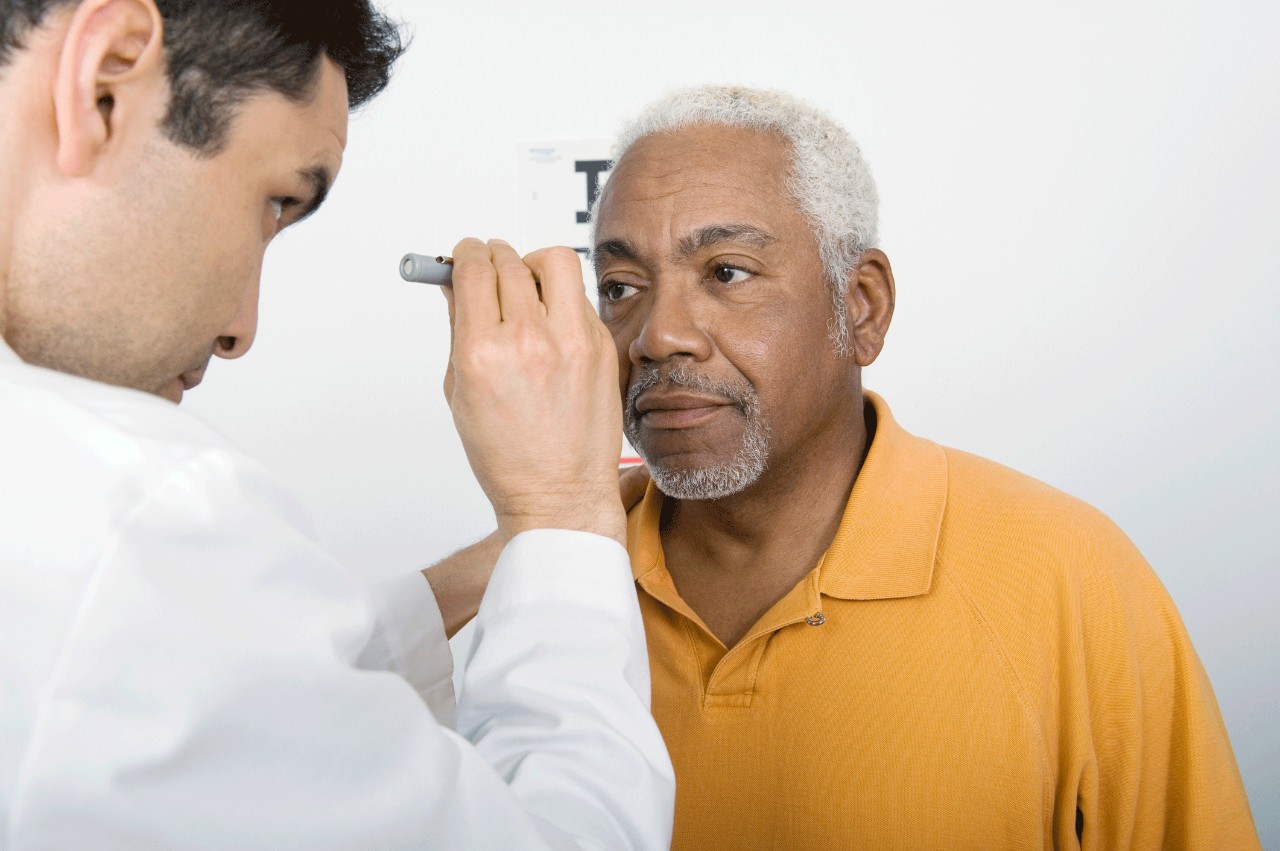What Is Diabetic Retinopathy?

If blood sugar isn’t controlled, people with diabetes can develop diabetic retinopathy. This vision-robbing condition can cause blindness, if not treated early.
While everyone should have regular eye exams and seek medical attention any time they notice significant vision changes, people with diabetes have an extra reason to commit to regular eye care. They run the risk of developing a vision-robbing condition called diabetic retinopathy. If not caught early and adequately treated, it can eventually cause blindness.
To understand diabetic retinopathy, it’s important for people with diabetes to know the dangers of not keeping their blood glucose (also called blood sugar) under good control.
Over time, high blood glucose levels damage nerves and blood vessels all over the body, the National Eye Institute (NEI) explains. Diabetic retinopathy results when this damage occurs in your eyes.
Specifically, diabetic retinopathy impacts the retina — the part of your eye that detects light and sends signals to your brain through the optic nerve, located in the back of your eye.
YOU MIGHT ALSO LIKE: Complications of Diabetes
Anyone with diabetes is at risk for diabetic neuropathy
You can develop diabetic retinopathy whether you have type 1, type 2, or gestational diabetes (diabetes that develops during pregnancy). Your risk goes up the longer you’ve had diabetes and when blood glucose is not under control.
In all, more than two in five Americans with diabetes have some stage of diabetic retinopathy, ranging from minor problems to blindness. In fact, diabetic retinopathy is the most common cause of vision loss in people with diabetes, according to the NEI.
Working with your doctor to keep blood sugar in your target range can lower your risk of diabetic retinopathy. But, if you do develop the condition, early diagnosis and treatment can help prevent more damage.
The stages of diabetic retinopathy
In the early stages of diabetic retinopathy, most people don’t have any obvious symptoms. Some may note changes in their vision, including difficulty seeing objects at a distance or reading. These symptoms can come and go and may be chalked up to growing older when, in fact, they can be signs of diabetic retinopathy.
Damage to your eyes first begins when high blood sugar leads to blockages in the tiny blood vessels connected to your retina. This causes the blood vessels to bleed or leak fluid and, in turn, triggers your eyes to grow new blood vessels, which typically also bleed easily, the NEI notes.
As diabetic retinopathy advances into later stages, blood vessels in the retina bleed into the vitreous, a gel-like substance that fills most of the center interior of your eyes and contains millions of extremely fine fibers attached to the surface of the retina. When this happens, you may see dark streaks resembling cobwebs or floating spots.
Even if these visual disturbances clear on their own, it’s important to call your doctor and seek treatment from an eye specialist (ophthalmologist) as soon as possible, as the bleeding can happen again. It may be more severe the next time and even cause scarring.
Over time, especially if your diabetic neuropathy is not adequately treated and blood sugar is not under control, additional, potentially serious eye conditions can develop:
- Diabetic macular edema (DME). About 50 percent of people with diabetic retinopathy will develop DME, which occurs when leaking blood vessels in the retina cause swelling in the macula (the central area of the retina important for your keenest vision). If you have DME, blurry vision is often the result.
- Tractional retinal detachment. Diabetic retinopathy can cause scar tissue that pulls your retina away from the back of your eye. Symptoms include floaters, flashing lights, and a shadow or “curtain” in your peripheral vision that can remain in one spot or progress and block the center of your vision. The severity of these symptoms is often related to the extent of the detachment, according to the American Society of Retinal Specialists.
- Neovascular glaucoma. Glaucoma is a condition marked by damage to the optic nerve, which connects the eye to your brain. It’s usually due to a build-up of pressure inside your eye. This can happen when diabetic retinopathy causes abnormal blood vessels to grow out of the retina and block fluid from draining out of your eye. The resulting increased pressure can damage the optic nerve, causing vision loss.
What is diabetic retinopathy treatment?
Once you are diagnosed with diabetic retinopathy, if the condition is in the early stages, your eye doctor will likely keep track of your eye health regularly to see if the retinopathy is progressing. You may need a comprehensive dilated eye exam as often as every two to four months.
If you have diabetic retinopathy that is progressing to a later stage, especially if your vision is affected, you will need to receive treatment. While damage to vision that has already occurred from diabetic neuropathy can’t be reversed, treatment can help stop vision loss.
Depending on your specific diabetic retinopathy symptoms and condition, you may receive these treatments:
- Injections. The blood vessels that grow under the retina and leak fluid due to diabetic retinopathy are stimulated by a protein called VEGF. Injections of anti-VEGF drugs can slow or reverse diabetic retinopathy progression. Corticosteroids are other medications that can help.
- Laser treatment. To reduce swelling in your retina, eye specialists use lasers to make the blood vessels shrink and stop leaking.
- Eye surgery. If your retina is bleeding a lot, or you have a significant amount of scarring in your eye due to diabetic retinopathy, your eye doctor may recommend a vitrectomy. In this surgery, an ophthalmologist removes blood or scar tissue that is keeping light from focusing normally on your retina, resulting in poor vision, the American Academy of Ophthalmology explains.
YOU MIGHT ALSO LIKE: High Blood Sugar and Heart Attack Complications
Updated:
February 17, 2023
Reviewed By:
Janet O’Dell, RN